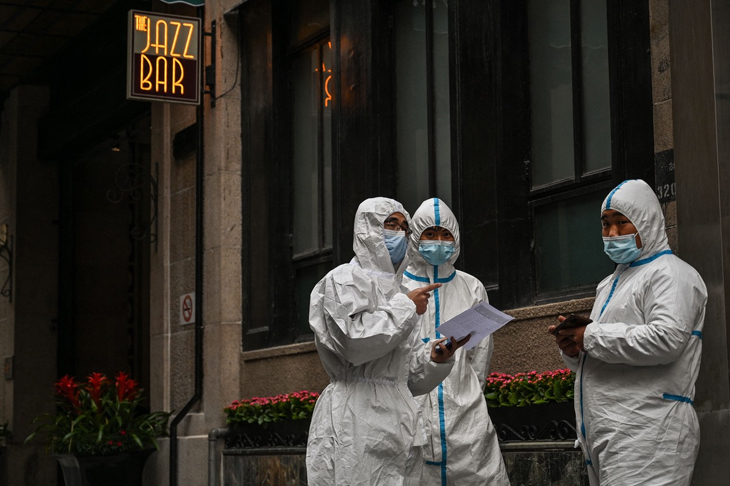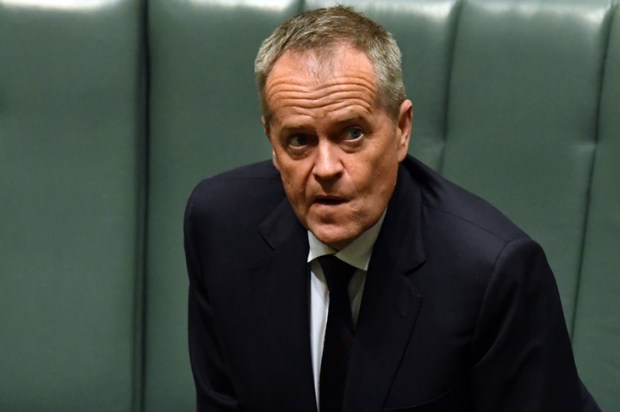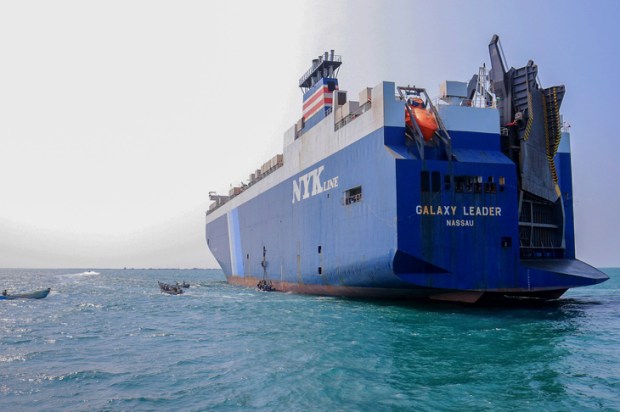Two decades ago, I had the pleasure of visiting M on the Bund, one of Shanghai’s finest restaurants. The creation of Australian Michelle Garnaut, it opened in 1999 on the top floor of the Nissin Building, its terrace offering a spectacular view of the colonial buildings on the Bund and across the Huangpu River to Pudong.
Now a postcard picture of modern architecture and soaring buildings, the area was developed in the early years of the century. The old tenement buildings of downtown Shanghai were replaced by the modern office blocks that now mark the city skyline. The highspeed railway system was built and the airport developed. Within a decade, Shanghai had become a global financial centre, a significant manufacturing region, and one of the world’s busiest ports. This bustling, thriving modern city became a centrepiece of the Chinese economy and a showcase of the nation.
For many months now, Shanghai has been in lockdown, the consequence of Xi Jinping’s Covid-zero policy. Images have emerged of people detained in cages, refused egress from their homes, and arrested in the streets while exercising. As much as $318 billion will be spent pursuing Xi’s goal of Covid-zero by installing testing booths within 15 minutes of every resident. The once vibrant city has appeared devoid of people, a ghost town of gigantic proportions. The impact has spread beyond Shanghai to major cities such as Suzhou, Shenzhen, Dongguan, and Beijing, trapping more than 150 million people.
Why is President Xi hell-bent on a strategy that has failed elsewhere as the virus mutates into more infectious strains? The answer, as always in China, is ideological. As with every other facet of life, there is a ‘Xi Jinping thought on Covid-19’. In a recent article published by the Central Party School of the Chinese Communist Party, the head of the nation’s National Health Commission, Ma Xiaowei, insisted that China ‘must take a clear stand against the current wrong ideas such as so-called “co-existence with the virus.”’ Scientists, doctors, and other health experts are consulted, but it is Xi Jinping who decides the policy, based on an ‘ideological understanding’ of an ‘ideological problem’.
This ‘ideological understanding’ springs from the Marxist belief that epidemics are caused by capitalism. No wonder the CCP has denied the virus escaped from a Wuhan laboratory and stymied international investigation. This ‘ideological understanding’ also explains why the regime tried to blame others, especially the US and even Ukraine, for the pandemic. This belief is reinforced by the Marxist notion that capitalist societies protect the bourgeoisie rather than the workers. Rather than ‘co-exist’ and allow the rich greater access to health care, Xi’s Covid-zero policy applies to all. One consequence is that Xi is trapped in China, the most prominent victim of his own policies. He even trained in and out of Hong Kong in a day for the 25th anniversary of the handover and cancelled a planned banquet for fear of contracting the virus.
Questioning Xi’s dictates is forbidden. Speaking at a Politburo Standing Committee meeting, Xi declared that he would ‘unswervingly adhere to the general policy of “dynamic zero-Covid”, and resolutely fight against any words and acts that distort, doubt or deny our country’s epidemic prevention policies’. He added ‘our prevention and control strategy is determined by the party’s nature and mission, our policies can stand the test of history, our measures are scientific and effective. We have won the battle to defend Wuhan, and we will certainly be able to win the battle to defend Shanghai.’ Xi has since said that the regime would punish anyone who questions his policies. The Chinese translation of a comment by a leading epidemiologist, Zhong Nanshan, that ‘prolonged dynamic zeroing cannot be pursued in the long run’ was quickly removed from the web.
The President’s doctrinaire insistence has meant that although the Pfizer-BioNTech vaccine has been approved for use in China, it is not being utilised. Instead, the regime has been attempting to develop a domestic mRNA vaccine. Forty per cent of elderly Chinese remain unvaccinated. ‘He never told the Chinese people that they had been inoculated with a vaccine that was designed for the original Wuhan variant and offers very little protection against new variants,’ claimed George Soros, a long-time critic of the regime.
The zero-Covid policy is having significant adverse impacts. Premier Li Keqiang recently stated that the economy was at a ‘critical point’ and ‘some degree worse’ than it was at the start of the pandemic. Unlike Xi, Li is an economist who has stressed the need to stabilise employment in a worsening situation. Significantly, no working-age Chinese has experienced a recession. The nation’s housing sector is in major trouble with huge debt burdens, and the Hang Seng Tech index has fallen by more than 40 per cent in the past year. Economic growth has fallen markedly. Despite the wraps from some major investment houses, manufacturers are reducing offshoring. Many firms are considering transferring their operations elsewhere. Others are seeking to diversify supply chains to avoid the Chinese slowdowns and move investments away from China.
The country’s already low birth rate has continued its downward trajectory, with its largest two-year decline since the 1959-61 Great Famine. On current estimates, the country’s population could halve by the end of the century, cutting economic growth in the process.
Despite the growing evidence that Xi’s policy is having significant adverse effects, he remains steadfast. Many observers believe that he has pinned his election for a third term as the General Secretary of the CCP on defeating Covid. But even in the opaque world of internal CCP politics, there are indications that Xi’s ambitions are not without challenge. Premier Li’s comments about the state of the economy, made unusually during an emergency video meeting with about 100,000 cadres in late May, is viewed as evidence by some of the tensions within the inner circles of the CCP. There are also reports of Li appearing maskless at a major event, in what some see as a challenge to Xi’s policies. Significantly, the dates for the 20th Party Congress, expected in the coming months, have yet to be announced.
A postscript: M on the Bund closed earlier this year after 23 years in operation. It is symptomatic of a nation closing its doors to the world.
Finally, with the death of Shinzo Abe, we have lost a giant of the Asian polity, a committed democrat and a great friend of Australia.
Got something to add? Join the discussion and comment below.
Get 10 issues for just $10
Subscribe to The Spectator Australia today for the next 10 magazine issues, plus full online access, for just $10.
You might disagree with half of it, but you’ll enjoy reading all of it. Try your first month for free, then just $2 a week for the remainder of your first year.














Comments
Don't miss out
Join the conversation with other Spectator Australia readers. Subscribe to leave a comment.
SUBSCRIBEAlready a subscriber? Log in